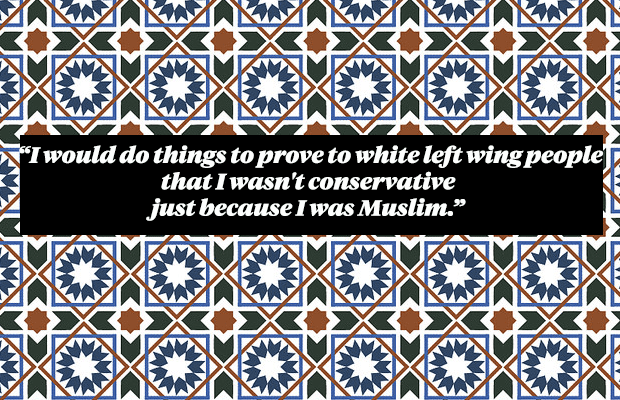To begin with, I in no way believe I have to justify myself and what I believe to anyone. But I will say that I’ve given it much thought lately.
On my first day at the University of Sydney I was called oppressed and a terrorist by a young white woman at Victoria Park. I was minding my own business and walking to my first class of the year – a philosophy lecture – from which I remember the first question asked was “Does God exist?”. Although I don’t recall a time where being Muslim was not political, having grown up in Bankstown, I was always surrounded by a strong and vibrant Muslim community. Perhaps I didn’t realise it at the time, but my first day at USyd marked the beginning of a confronting process, through which I became more conscious of who I am. Suddenly, it seemed to matter a lot more that I wore a Hijab, didn’t drink or do drugs, that I was visibly Muslim.
In my first year, I did not make any friends at university. Along with being anxious about people’s preconceived ideas surrounding Islam and refugees, I was also somewhat insecure about who I was. I am naturally an anxious person but some sheltered part of me didn’t realise the actual disdain many people felt towards migrants, Muslims and Western Sydney. I distinctly remember one of my first year Geopolitics classes where the discussions on asylum seekers actually made me really upset because I was one of two people who outwardly spoke against the cruel and inhumane ways of offshore detention. It was only after a year of growth, being upset and several arguments in my government and IR classes, that I decided to join in on some student political movements.
My first impression of the political spaces at USyd was pretty much the same as many people. During Orientation-Week I was pressed by some members of the Socialist Alternative who began their conversation by asking “What do you think of the Muslim ban?”. I must admit I was a little shocked that they would even ask me that considering the fact that I was visibly Muslim. However, as I spent more time in political spaces on campus, unfortunately, such questions started to become more familiar.
I’ve actually been asked questions on everything from “Do you hate Jews?” to “What are your thoughts on abortion?” and quite frankly I’m over it. They’ve happened both slyly and overtly and it’s sad because I’ve literally never heard anyone relate to this. I don’t like politics. But having an identity that is inherently political, whilst studying a degree in politics puts me in a position where I have no choice but to speak out.
Towards the end of my first year of university, I joined the Wom*n’s Collective who were perceptive to my hesitance regarding student politics, specifically with how white it is. I quickly found that USyd Woco was extremely proactive in organising activism surrounding women on campus, prompting me to become a more active member in my second year. USYD WoCo is probably the most active collective and organising body within the SRC and they focus a lot on activism surrounding women on campus. However, despite their important work, I noticed that being in those activist spaces did not necessarily alleviate the anxieties and pressures I felt because of being Muslim. In fact, at some points being in those mostly white, left-wing spaces made me feel further pressured and anxious.
This pressure came in a different form though. It became such that I wasn’t just self-conscious and hyperaware of my identity but that I also needed to perform to a certain standard of progressiveness. It became such that I would do things to prove to white left wing people that I wasn’t conservative just because I was Muslim.
I’m not conservative at all. And I’ve never felt the need to ever say that out loud or justify myself. But now that I am fully immersed in those spaces I can’t help but wonder why I (one of the only visibly Muslim people involved in activism on campus) feel like I have to prove myself worthy of being in organising spaces when no one else has to.





